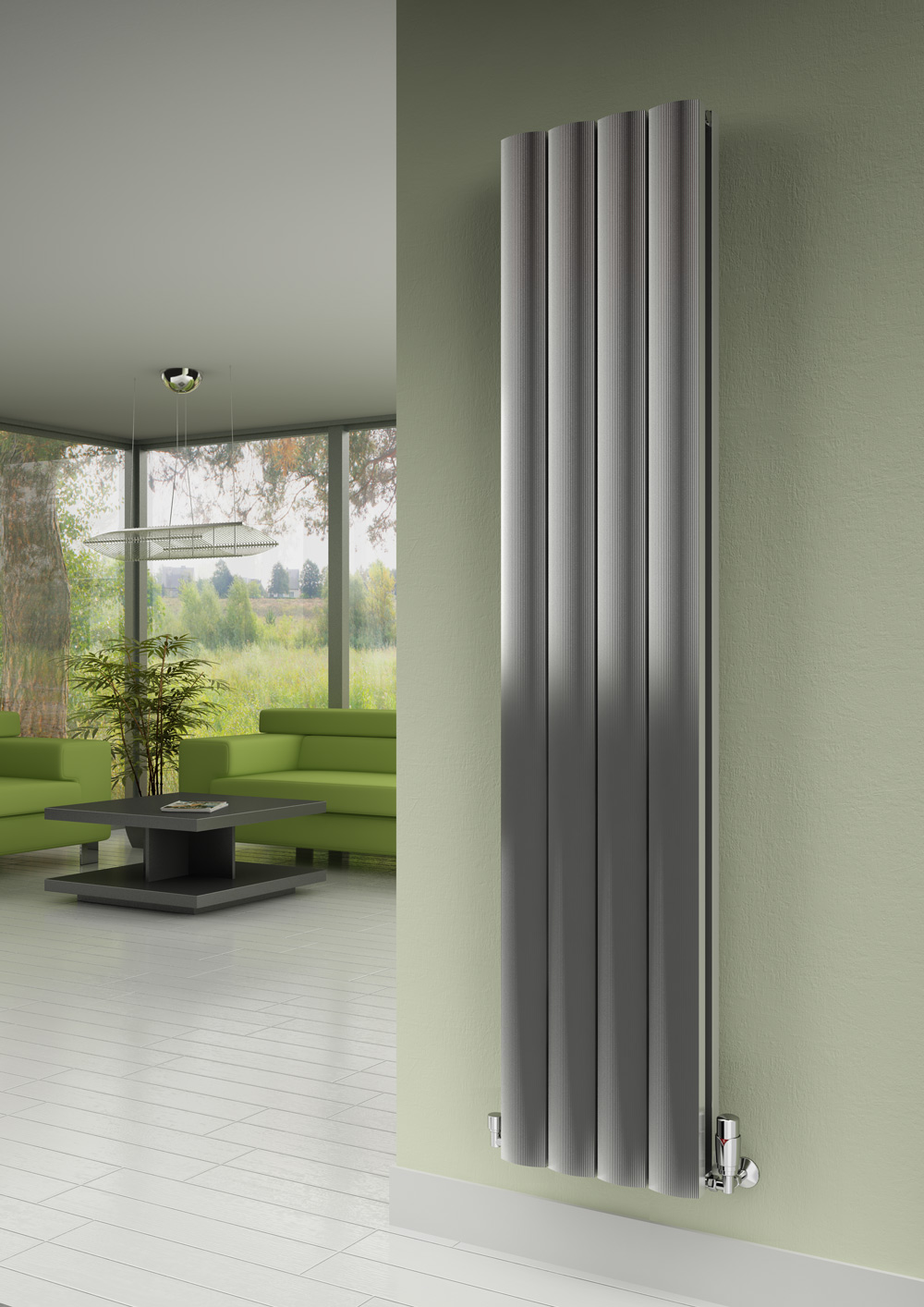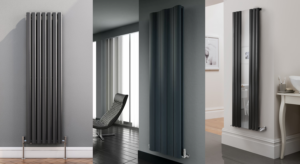Understanding the Cost of Fitting New Radiator

As the temperature drops, it’s essential to ensure your home is warm and comfortable. One way to achieve this is by fitting a new radiator. However, the cost of this project may be a concern for many homeowners. In this section, we’ll take a closer look at the factors that influence the cost of fitting a new radiator in your UK home.
From the type of radiator you choose to the complexity of the installation and any additional plumbing work required, several factors can impact the overall cost of this project. We’ll also explore ways to maximize value without compromising on quality.
Key Takeaways
- The cost of fitting a new radiator can vary depending on several factors, including the type of radiator, complexity of the installation, and any additional plumbing work required.
- As a rough estimate, you can expect to pay between £250 and £500 for a standard radiator installation, including labor and materials.
- Radiator replacement costs can range from £300 to £800, including labor and materials.
- The radiator fitting process involves several steps, including draining the central heating system, removing the old radiator if necessary, connecting the new radiator to the existing pipework, and refilling and testing the system.
- Choosing a reputable supplier and opting for energy-efficient radiators can help maximize the long-term value and reduce heating costs.
Factors Affecting the Cost of Fitting New Radiator
When it comes to installing a new radiator in your home, there are several factors that can influence the overall cost. Understanding these factors can help you plan your budget accordingly and ensure you get the best value for your investment.
Type of Radiator
The type of radiator you choose can have a significant impact on the overall cost of installation. For example, a standard panel radiator is generally less expensive than a designer radiator or a heated towel rail. In addition, certain types of radiators may require additional plumbing work or modifications to your existing heating system, which can increase the overall cost.
Complexity of Installation
The complexity of the installation can also affect the cost of fitting a new radiator. If the radiator is being installed in a new location, additional pipework may be required, which can increase the cost. In addition, if the existing heating system is old or outdated, it may need to be upgraded or modified to accommodate the new radiator, which can also add to the overall cost.
Location within Your Home
The location of the radiator within your home can also impact the overall cost. For example, if the radiator is being installed in a hard-to-reach location, such as behind a wall or under the floorboards, additional labour may be required to complete the installation, which can increase the cost.
Additional Plumbing Work Required
In some cases, additional plumbing work may be required to install a new radiator. For example, if the existing pipework is not compatible with the new radiator, new pipework may need to be installed, which can add to the overall cost. Similarly, if the existing heating system needs to be modified or upgraded, this can also increase the cost of installation.
Overall, the cost of fitting a new radiator can vary depending on various factors, such as the type of radiator, complexity of the installation, and any additional plumbing work required. When considering the cost, it’s important to also factor in the labor cost for installing the new radiator, which can range from £150 to £400 depending on the complexity of the installation and any additional work required.
Average Cost to Install a Radiator
When it comes to installing a new radiator in your home, the average cost can vary depending on several factors. These factors can include:
- The type of radiator you choose
- The complexity of the installation
- The location within your home
- Any additional plumbing work required
Despite these variables, it’s still possible to estimate the overall cost of installation. On average, you can expect to pay between £250 to £500 for a standard radiator installation. This price includes the cost of labor and materials. However, keep in mind that this is just an average and the actual cost may vary depending on your specific needs and requirements.
It’s important to note that while you may be tempted to opt for a cheaper radiator or installer to save money, this decision can often lead to higher costs in the long run. By choosing a reputable supplier and experienced installer, you can ensure that your new radiator is energy-efficient and will last for years to come.
Evaluating the Cost of Radiator Replacement
If you’re looking to replace an existing radiator, it’s essential to consider the costs involved. The cost of a radiator replacement can vary depending on the size and type of radiator you choose, as well as any additional work required to remove the old radiator and install the new one. On average, radiator replacement costs can range from £300 to £800, including labor and materials.
However, there are several factors to consider when evaluating the cost of a new radiator and installation. While a higher initial investment may seem daunting, opting for an energy-efficient radiator can help save on heating costs in the long run. Additionally, choosing a reputable supplier and experienced installer can ensure that the installation is done correctly and efficiently, reducing the need for future repairs.
When evaluating the cost of a radiator replacement, it’s important to consider the benefits and energy efficiency of the new radiator. While the upfront cost may be higher, an energy-efficient radiator can help reduce your heating bills and provide long-term value. Additionally, it’s essential to consider the installation cost, which can vary depending on the complexity of the installation and any additional work required.
Overall, evaluating the cost of a radiator replacement involves balancing upfront costs with long-term value and energy efficiency. By considering these factors and consulting with experienced installers, you can make an informed decision that meets your budget and heating needs.
Understanding the Radiator Fitting Process
Fitting a new radiator can be a complex process that involves several steps. Before starting the installation, the central heating system must be drained to prevent water leakage. Once this is done, the old radiator can be removed if necessary. The new radiator is then connected to the existing pipework and secured in place.
After the radiator is securely installed, the central heating system must be refilled with water and tested to ensure there are no leaks. A qualified plumber or heating engineer typically handles the installation process, and the cost of fitting a new radiator usually includes the labor charges.
| Radiator Fitting Cost | Radiator Installation Price | Fitting a New Radiator Cost |
|---|---|---|
| £150 | £250 | £400 |
The cost of fitting a new radiator can vary depending on the complexity of the installation and any additional work required. Simple installations are generally less expensive than more complex installations. Comparing quotes from different installers and considering their experience and customer reviews can help you find the best value for money.
It is important to remember that opting for experienced professionals and high-quality materials can help ensure that the installation is done correctly and safely. This can save you money in the long run by preventing the need for repairs or replacements due to poor installation.
Maximizing Value Without Compromising on Quality
When it comes to fitting a new radiator, it’s important to keep the overall cost in mind. However, prioritizing quality and efficiency should also be a top consideration to maximize the long-term value of your investment.
Start by choosing a reputable supplier that offers a wide range of radiator options, including energy-efficient models. While these may have a slightly higher initial cost, they can save you money on your heating bills in the long run.
Comparing quotes from multiple installers is also key to getting the best value for your money. Consider their experience and customer reviews when making your decision.
| Considerations | Cost Implications |
|---|---|
| Size and type of radiator | Affects both installation and ongoing heating costs |
| Complexity of installation | Can impact labor charges and material requirements |
| Location within your home | May require additional plumbing work and affect installation time |
By comparing your options and taking into account these factors, you can make an informed decision that balances cost, quality, and energy efficiency. Remember, your comfort and warmth are top priorities when it comes to fitting a new radiator.
Expert Tip:
Don’t forget to ask about any warranties or guarantees that come with your new radiator installation. This can help protect your investment and provide you with peace of mind.
Final Thoughts on the Cost of Fitting New Radiator
When it comes to fitting new radiators in your UK home, cost is an essential factor to consider. However, it’s important not to compromise on quality, comfort, and energy efficiency. By understanding the different factors that affect the cost of the installation, you can plan your budget accordingly and make informed decisions.
As we’ve seen, the average cost to install a radiator can range from £250 to £500, while the cost of replacing an existing radiator can be between £300 to £800. These costs can vary depending on the size and type of radiator, complexity of the installation, and any additional plumbing work required.
When evaluating the cost, it’s crucial to consider the long-term benefits of energy-efficient radiators. While they may be slightly more expensive upfront, they can significantly reduce your heating costs in the long run, making them a worthwhile investment.
It’s also crucial to choose a reputable supplier and installer. Comparing quotes from multiple installers and considering their experience and customer reviews can help ensure you get the best value for your investment.
Ultimately, the cost of fitting a new radiator will depend on various factors unique to your home. By prioritizing comfort, efficiency, and quality, you can make an informed decision that works for your budget and heating needs.
FAQ
Q: What factors affect the cost of fitting a new radiator?
A: The cost of fitting a new radiator can be influenced by factors such as the type of radiator chosen, the complexity of the installation, the location within your home, and any additional plumbing work required.
Q: What is the average cost to install a radiator?
A: On average, you can expect to pay around £250 to £500 for a standard radiator installation, including labor and materials. However, it’s important to note that the actual cost may vary based on your specific requirements.
Q: How much does radiator replacement cost?
A: The cost of radiator replacement can range from £300 to £800, including labor and materials. The final price will depend on factors such as the size and type of radiator chosen, as well as any additional work required to remove the old radiator and install the new one.
Q: What does the radiator fitting process involve?
A: The radiator fitting process typically includes draining the central heating system, removing the old radiator (if necessary), connecting the new radiator to the existing pipework, and refilling and testing the system. The cost of fitting a new radiator usually includes the labor charges of a qualified plumber or heating engineer.
Q: How can I maximize value when fitting a new radiator?
A: To maximize value, it’s important to prioritize quality and efficiency. Choose a reputable supplier and opt for energy-efficient radiators. Comparing quotes from multiple installers, considering their experience and customer reviews, can help ensure you get the best value for your investment.
Q: What should I consider when evaluating the cost of fitting a new radiator?
A: When evaluating the cost, consider factors such as the type of radiator, complexity of the installation, and any additional plumbing work required. Balancing cost, quality, and energy efficiency will help you make an informed decision that suits your budget and heating needs.
Q: What should I prioritize when fitting a new radiator?
A: When fitting a new radiator, prioritize comfort and warmth while keeping your budget in mind. It’s important to strike the right balance between cost and quality to ensure a cosy and efficient heating system for your home.
Take Action Now!
Explore our top-selling radiators in the UK and choose one that fits your budget and requirements. Don’t settle for a subpar heating system and upgrade your home heating with the best selling radiators today. Your comfort, energy bills, and the environment will thank you.
It is crucial to seek guidance from the manufacturer and a certified professional for the installation process to ensure safety and compliance with all technical specifications and requirements. Proper installation is key to the optimal performance and longevity of the product.
Additionally, professional installation may be necessary to maintain the product’s warranty. Therefore, it is highly recommended to consult with experts and not attempt to install the product yourself unless you are qualified to do so.




